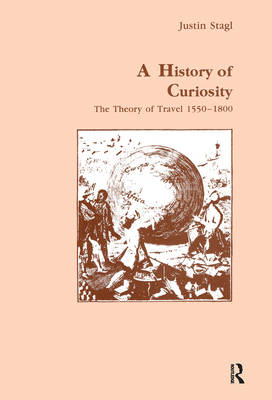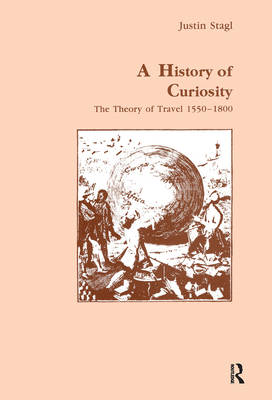
- Afhalen na 1 uur in een winkel met voorraad
- Gratis thuislevering in België vanaf € 30
- Ruim aanbod met 7 miljoen producten
- Afhalen na 1 uur in een winkel met voorraad
- Gratis thuislevering in België vanaf € 30
- Ruim aanbod met 7 miljoen producten
Zoeken
Omschrijving
The author's grasp of the vast, often obscure, but highly interesting body of literature which emerged in the sixteenth to nineteenth centuries commands the attention of a wide readership outside purely academic boundaries. Stagl weaves together a series of separate studies, emphasizing links between the figures, the philosophies and the literature of early modern times; links which have previously only been suspected. In focusing on the ars apodemica, or art of travelling, a body of formal instruction on how to travel, observe and record the information gathered, Stagl demonstrates the origins of the characteristic inquisitive and systematizing spirit of the modern West. A History of Curiosity examines the early methodology of anthropological and social research from a critical-historical perspective. The two principal methods of research, travel and the questionnaire, are studied in the context of the social conditions and intellectual trends of early modern times.
Specificaties
Betrokkenen
- Auteur(s):
- Uitgeverij:
Inhoud
- Aantal bladzijden:
- 352
- Taal:
- Engels
- Reeks:
- Reeksnummer:
- nr. 13
Eigenschappen
- Productcode (EAN):
- 9783718653423
- Verschijningsdatum:
- 1/06/1995
- Uitvoering:
- Hardcover
- Formaat:
- Genaaid
- Afmetingen:
- 175 mm x 246 mm
- Gewicht:
- 951 g

Alleen bij Standaard Boekhandel
+ 366 punten op je klantenkaart van Standaard Boekhandel
Beoordelingen
We publiceren alleen reviews die voldoen aan de voorwaarden voor reviews. Bekijk onze voorwaarden voor reviews.








